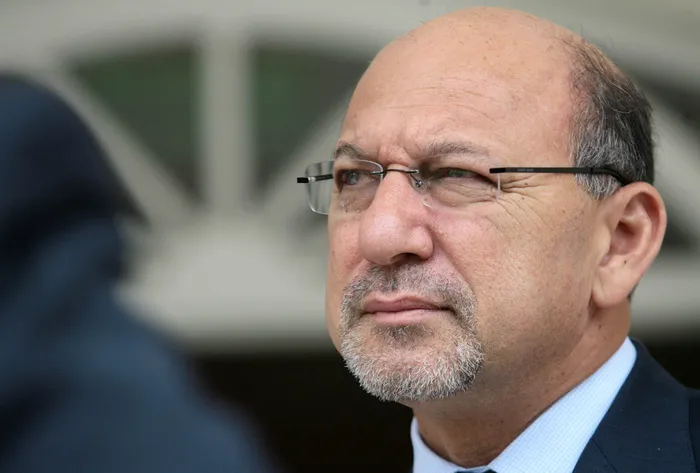Trevor Manuel highlights debt crisis as a barrier to African development at G20 meetings
G20

Former Finance Minister Trevor Manuel, Chairperson of the Africa Expert Panel, said that debt in the continent is a major hindrance to growth and development. Manuel was addressing the media at the G20 Finance Track meetings.
Image: Werner Beukes/Independent Newspapers
Former finance minister Trevor Manuel has issued a stark warning regarding the pervasive debt challenges facing the African continent.
Speaking at the G20 Finance Track meetings on Wednesda, Manuel underscored how burgeoning debt service costs were stifling essential development expenditures, particularly in health and education.
Manuel said this usually happened in circumstances where countries have not borrowed more, but the interest rate burden has increased very rapidly.
"Debt squeezes out development. It impoverishes countries, actually. It's the only thing that is really shared by people," he said.
"The expert panel has made 11 recommendations to deal with debt going forward. We need to develop a handle on debt. Part of dealing with debt is also understanding the cost of capital. And there are elements of the cost of capital that need particular attention."
A particularly alarming aspect mentioned by Manuel is the detrimental impact of currency depreciation on debt management. Many African countries have borrowed in foreign currencies such as US dollars or euros, subjecting them to significant risks when their own currencies fluctuate.
"When countries borrow, and the interest rates are very high, and they increase over time, then there's a bigger problem going forward. The third aspect of debt is working with Africa to ensure that we develop domestic capital markets. If countries could borrow in their own currencies, then they don't carry the exchange rate burden," he said.
"When you have a fluctuation, many countries borrow in dollars or euros. And when their own currencies depreciate against those hard currencies, then the interest rate burden becomes unsustainable."
Manuel also addressed the dire consequences of geopolitical tensions, spotlighting Lesotho as a case study to highlight the broader regional impact. With its economy heavily reliant on mining labour supply and apparel manufacturing, Lesotho is now facing severe challenges.
"Suddenly, Lesotho's exports are slapped with very high tariffs. If you look at the number of layoffs in Lesotho at the moment, the consequences on the general economy are significant, including the unemployment burden, the inability to collect taxes, and the fact that USAID has been shut down. The support for health and other systems in a country like Lesotho will manifest the impoverished people," said Manuel.
According to Manuel, the interconnected nature of the Southern African economy means that difficulties experienced by one nation can reverberate throughout the region.
“If you look at the region here, the Southern African Customs Union...we have a revenue share as well, so when something happens to any of our neighbours, it will have a massive impact on outflows from South Africa, impoverishing us further. And so these issues, I think, are fundamentally important for us going forward."
Manuel emphasised the Africa Expert Panel's commitment to establishing actionable steps to mitigate these challenges.
"We will develop norms and standards. And I think part of what we hope for in the African continent is the desire to hold the feet of the rich north to the fire. It's not going to happen just because there's a change of appetite. There needs to be a lot of pressure. There needs to be an understanding," he said.
"Part of what I'm saying happens in the lives of people. You shut down USAID just as a capricious act. The consequences in the lives of people, it's not as though there's been any war and there's no notice period that says in three years' time we're going to start scaling down.”
At the meeting, finance minister Enoch Godongwana said that the G20 brings multinational institutions as a whole.
"We discuss how to save global economies as a whole in the interest of people. It creates jobs and, in the long term, creates investment and boosts tourism," he said.
BUSINESS REPORT